10 eco tips for decluttering your garden shed
© Shutterstock
Here’s our guide to the best ways to reuse, recycle or safely dispose of everything from half-empty pots of paint to punctured paddling pools
If you’re planning to declutter your shed or garage, it can be tricky to know what to do with unwanted DIY materials and other detritus. It’s tempting to load up the car and head to the tip, but some items can be reused or recycled, rather than ending up in landfill. Plus, you may find some treasure in among the trash too.
Instead of emptying out the whole garage or shed at once, try tackling one type of item at a time. Yes, it’s a slower process, but it’s a more mindful one, helping you find a more eco-friendly solution for disposing of each item, with a feelgood factor that makes a job well done even more satisfying.

© Shutterstock
Bicycles
There’s a thriving market for second-hand bikes, so list unwanted cycles for sale on eBay or a local site, as even bicycles in poor condition can be refurbished. If beyond repair, most recycling centres with a mixed-metals facility can take the metal parts – type your postcode into the Recycle Now locator search tool to find your nearest site.
Another option is to donate to a charity that upcycles bikes. Resurrection Bikes is a volunteer-run organisation that refurbishes donated bikes in any condition – or uses them for parts – and sells them on in full working order, with the proceeds going to charity. You can also donate bikes to Recycle Your Cycle through Sue Ryder charity shops. The programme works in prisons and with other disadvantaged groups to help people learn new skills, and the refurbished bikes are sold to raise money for various charities, including many hospices.
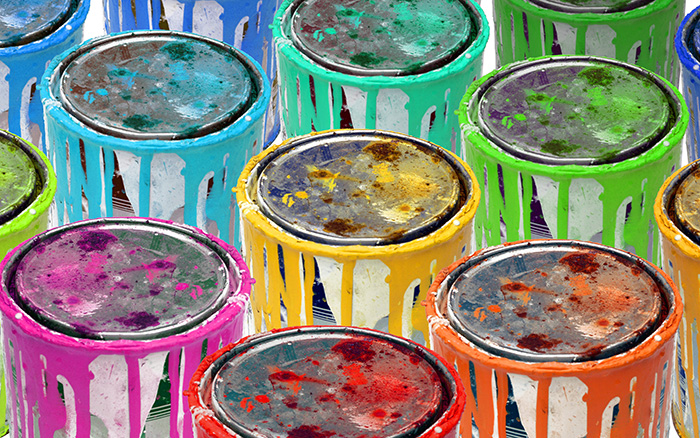
© Shutterstock
Paint
You can pass on unwanted paint by using sites such as Freecycle or donate it to Community RePaint, which collects leftover paint from drop-off points at household recycling centres, providing it to families, community projects and charities at an affordable cost. If you’re in Leeds, you can donate leftover paint to Seagulls, which is then reprocessed and sold on at a budget-friendly price.
If you only have a small quantity of paint or it has gone hard, be aware that you can’t throw the cans in your household rubbish, and paint should not be poured down the drain as it may harden and cause a blockage. For a small amount of paint, B&Q recommends brushing it on to a large piece of paper or cardboard, letting it dry, then disposing of it in your household bin. If there’s a larger quantity, add soil, sand or sawdust to the tin and leave the lid off to allow it to harden, then tins can be taken to the recycling centre. Recycle Now says that solvent-based paint should be disposed of as hazardous waste – check with your council to see what they accept.
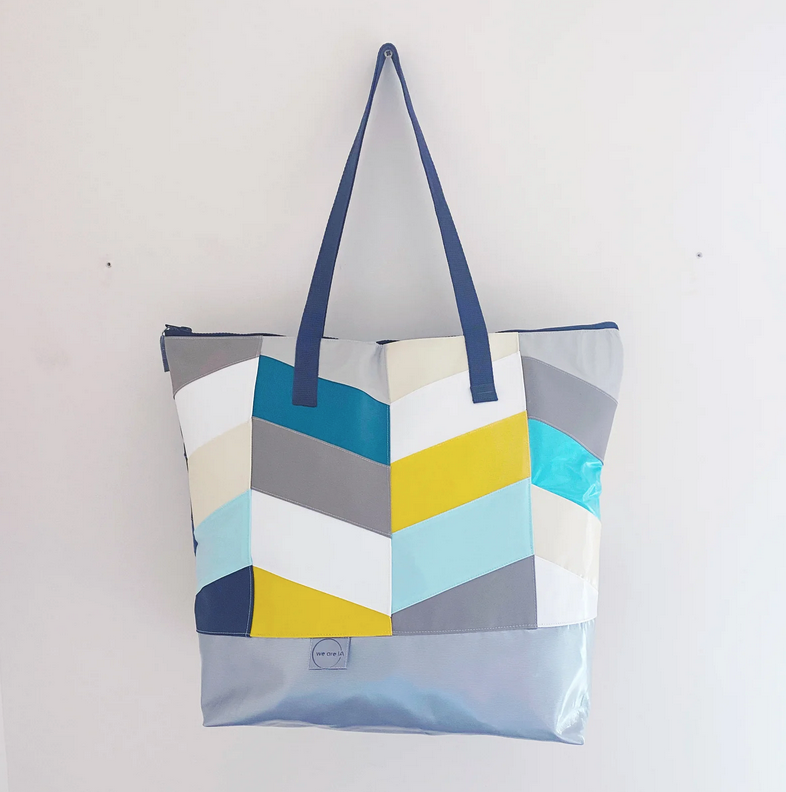
inflatableamnesty.com
Inflatables
The price may be low, but the environmental cost of plastic inflatables and paddling pools can be high. Inflatables are often made from PVC which is used for durability, but this means they are rarely recyclable and end up in landfill (or worse, in the sea). If they’re punctured and beyond repair, consider sending them to We Are IA, an innovative sustainable business that recycles salvaged bouncy castles and other inflatables and turns them into bags, including backpacks, washbags, pencil cases and totes. They run an ‘inflatable amnesty’ for people to send them their inflatables (you pay the postage) – and you have the option to have a bag made for yourself.
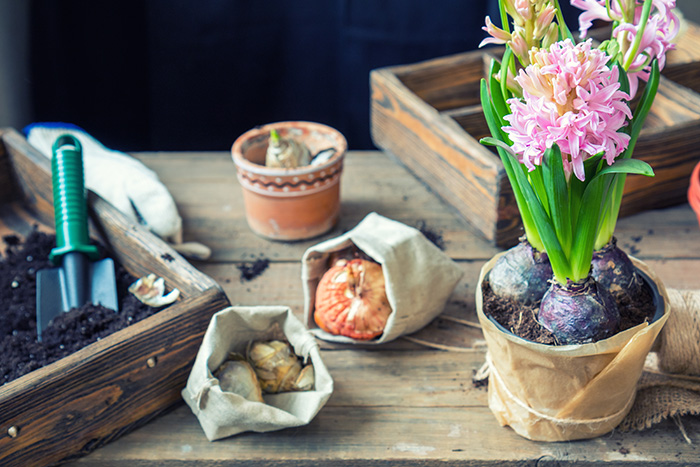
© Shutterstock
Plant pots
It’s amazing how these stack up in the shed – not surprisingly, as we use 500 million plastic pots and seed trays every year in the UK. Perhaps you can find another use for these pots? Give them a decorative makeover by painting them, using paints left over from other projects, or you can use metal patina-effect paints to achieve a stylish vintage look. Wrapping pots in hessian fabric or brown paper and tying with twine makes for a beautiful gift potted up with a plant.
It’s worth offering unwanted pots on local sites, as gardeners, nurseries or community projects may be able to use them if you have a large quantity. For any pots you can’t reuse, Recycle Now tells you where to recycle them locally, or check with your local garden centre as some (Dobbies, for example) offer a recycling service for plastic pots and trays.
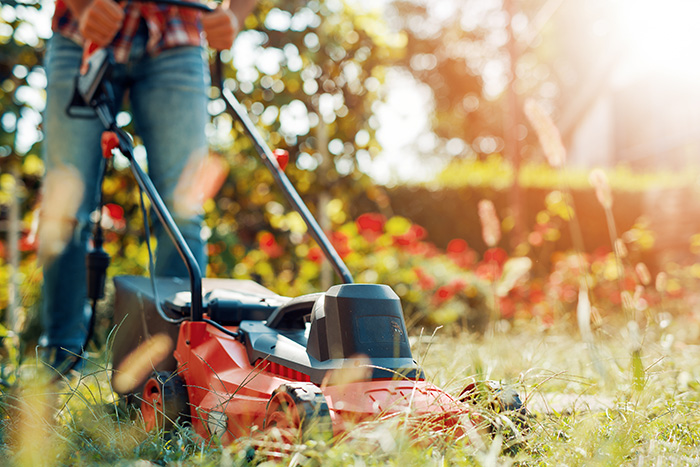
© Shutterstock
Electricals
Buying things that were built to last has been replaced by built-in obsolescence, with electrical items usually only sold with a one-year warranty because manufacturers and retailers make it easier and cheaper to buy a new appliance rather than get an old one fixed.
Firstly, consider if the broken item can be salvaged. Repair Cafés are popping up all over the UK now, where volunteers fix all kinds of gadgets, diverting them from landfill. If your item really is beyond repair, then the good news is that electricals are highly recyclable and often contain valuable resources such as precious metals, so they shouldn’t go into your household waste. Find your local electrical recycling point at Recycle Your Electricals or ask at your local recycling centre.
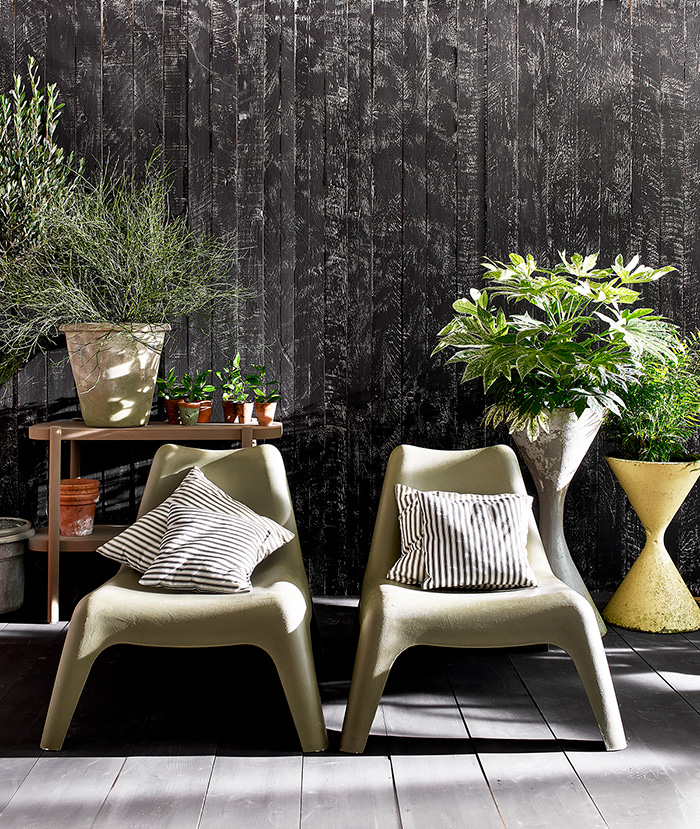
anniesloan.com
Garden furniture
Aim to prolong the life of wooden or plastic garden furniture for as long as possible. A wooden set can easily be freshened up with a scrub and a coat of wood oil or a stain for a natural look, or use an exterior wood paint from an eco-friendly brand. A plastic set can be transformed with a proprietary spray paint. Keep hold of your rusty metal or cast-iron bistro set as this will last for many years with a little sanding and regular applications of metal paint to deter rust – and a certain amount of wear adds to the charm.
Outdoor furniture that looks dated to you could be an upcycling project for someone else, so it’s always worth listing it for sale or free on a local site, even in poor condition. Alternatively, some charities will take garden furniture – try organisations such as Reuse Network or Reviive, or your local charity shop.
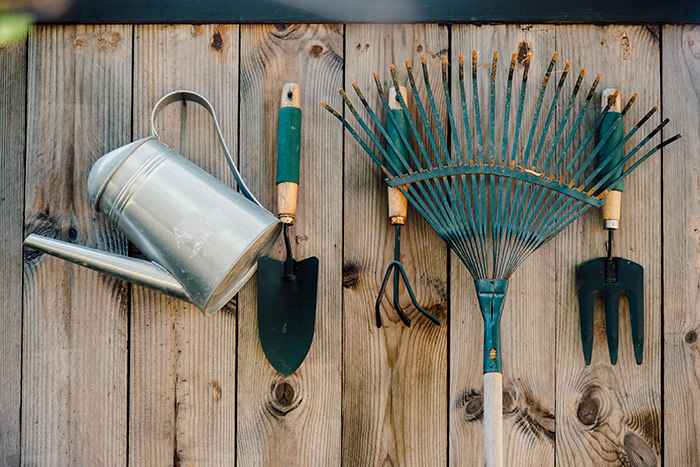
© Shutterstock
Tools
There are charities that take unwanted tools – organisations such as TWAM and WorkAid accept all kinds of gardening and hand tools and pass them on to people and projects both in the UK and overseas. Or try Tools Shed, a recycling project run by The Conservation Foundation, which collects tools from recycling and garden centres, takes them to prisons to be refurbished by inmates, then distributes them to schools and community gardens.
If you have vintage tools, perhaps inherited from your grandad’s shed, these can be refurbished and either used, displayed or sold on. Try Tooltique, which can assess, refurbish, and sell vintage and antique tools.
If you find you often end up buying tools for one job that are never used again, in future try using a ‘Library of Things’ or a tool library to borrow them instead – a great way of reducing waste and saving money too. Some tool libraries also accept donations of good quality unwanted tools and offer other services, such as tool sharpening.
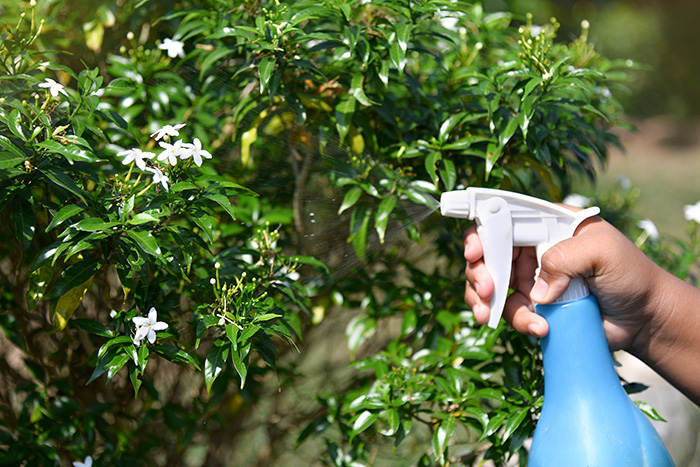
© Shutterstock
Garden chemicals
With many of us going organic in our gardens, you may find you’ve got a few unwanted, half-finished bottles of weedkiller or pesticide in your shed. Never dispose of them down the drain, in water courses or on bare soil, as they may contaminate ground water. It’s best to use them up even if you don’t like the idea – perhaps just give your driveway or garden path a last blast of weedkiller, or apply to a weedy patch of your garden away from any edible plants.
The RHS recommends that empty pesticide and weedkiller containers that held concentrated solutions (ones needing to be diluted before use) should be rinsed out three times (add the rinsing water to your final spray solution or apply to weeds/plants), then the containers can be disposed of in your household waste. Containers that held ready-to-use products can now be recycled along with other plastics.
If you find unlabelled chemicals in the shed and you can’t identify them, or if you have a substantial number of containers of chemicals, go to Safe Disposal to find your closest site to dispose of them safely.
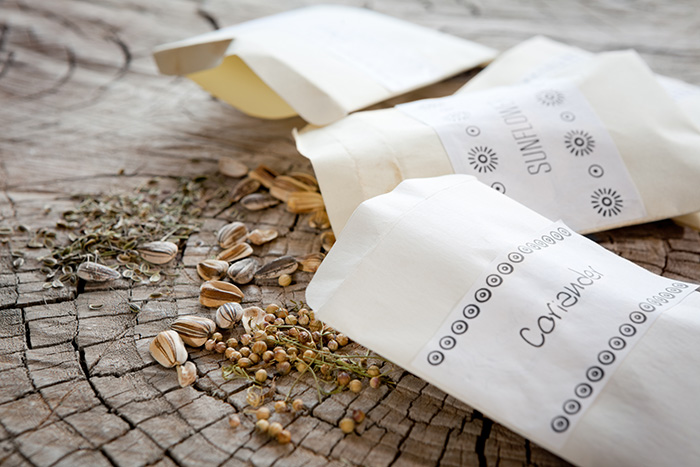
© Shutterstock
Seeds
Seed packets usually have use-by dates on them, so if you have seeds going back a decade, then the chances are they won’t germinate now. The best thing to do is to add them to your compost heap and recycle the paper packet. But newer seeds may still be worth using – most will be viable for at least two years, but some varieties like beans, peas, tomatoes and carrots can last for four years, and cucumber and lettuce could germinate after six.
If you have in-date seeds you know you won’t get around to growing, pass them on via a seed swap organisation or event. There are lots of these events taking place around the country – often in February before growing season gets underway. Seedy Sunday in the Brighton and Hove area is the UK’s biggest and longest-running community seed swap event, or check out Bristol Seed Swap.
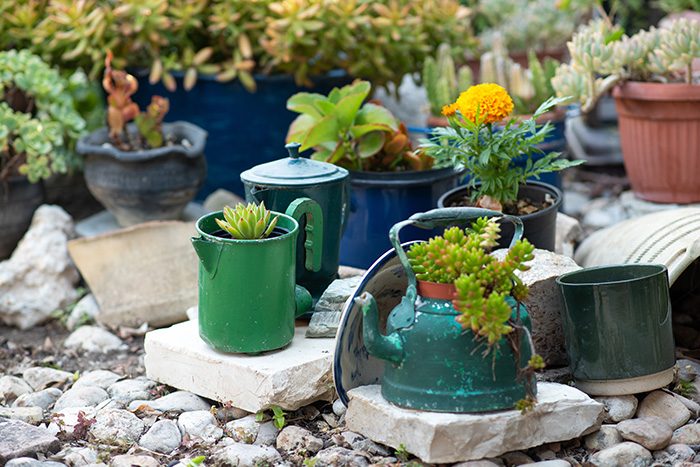
© Shutterstock
Materials and more
Odds and ends of wood can also be repurposed – leftover decking planks are perfect for making raised beds for the garden, while the wood from pallets can be used to build a new planter, a wall-hung garden bar, an outdoor coffee table or seating. A stash of leftover bricks or stones can become a stylish herb spiral, a fire pit, or used to edge a path or flower beds. A combination of wood and bricks could become a bug hotel in your garden.
All kinds of odd bits and bobs can be repurposed. Old kitchen pots and pans, wellies and galvanised buckets can be used as planters, a vintage ladder can become a pergola or trellis, and an old chest of drawers can be painted and used in the garden to display potted plants in the open drawers.
WORDS: LINDSEY HARRAD
Before you go...
...fancy automatic entry to all future competitions?
Simply register online today for FREE and you will get:
Automatic entry to all current and future competitions.
Access to Reclaim Inspiration - an online visual pinboard for saving all your home and style inspiration.
A regular newsletter of inspiration, ideas and advice.

Save all your articles in one place
Become a Reclaim Member to save all your home and style inspiration. Simply login or register online today for FREE and you will get:
Automatic entry to all current and future competitions.
Access to Reclaim Inspiration - an online visual pinboard for saving all your home and style inspiration.
A regular newsletter of inspiration, ideas and advice.








